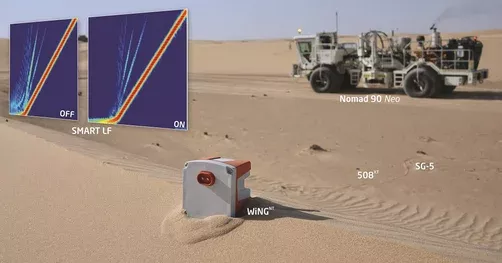Acquiring the broadest possible seismic data is beneficial to seismic imaging, in particular in terms of vertical resolution, the ability to built accurate velocity models and perform state-of-the-art inversions, in particular full-wave inversions. However, the term “broadband” is regularly associated to an extension towards the low frequencies only, whereas it should reflect an overall extension of the signal bandwidth.
Nonetheless, the recording of high frequencies, ideally above the conventional 80 to 100 Hz, matters too for shallow imaging, in particular for new applications such as the monitoring of offshore wind farms, carbon capture and use (CCS) or deep-sea minerals. As a matter of fact, as each octave contains the same level of information, the quality of a dataset can be considered as proportional to the number of exploitable octaves it contains.
The acquisition of seismic data being a chain, any weak link within this chain can possibly compromise the expected outcome of a survey. From a hardware perspective, we thus consider true broadband as an eight octave-wide capability in generating and recording high-fidelity seismic signal, to address the huge majority of industry needs without compromises.
True broadband is achievable only with a proper combination of hardware associated to its optimum field implementation with advanced acquisition scenarios, each of them contributing to the bandwidth extension and preservation of the signal quality.
Significant advances in equipment design have been achieved over the last decade to accomplish this goal and meet the expectations of both seismic contractors and data end-users.
Click below to download our complete article and learn more about our true broadband land and marine solutions...

